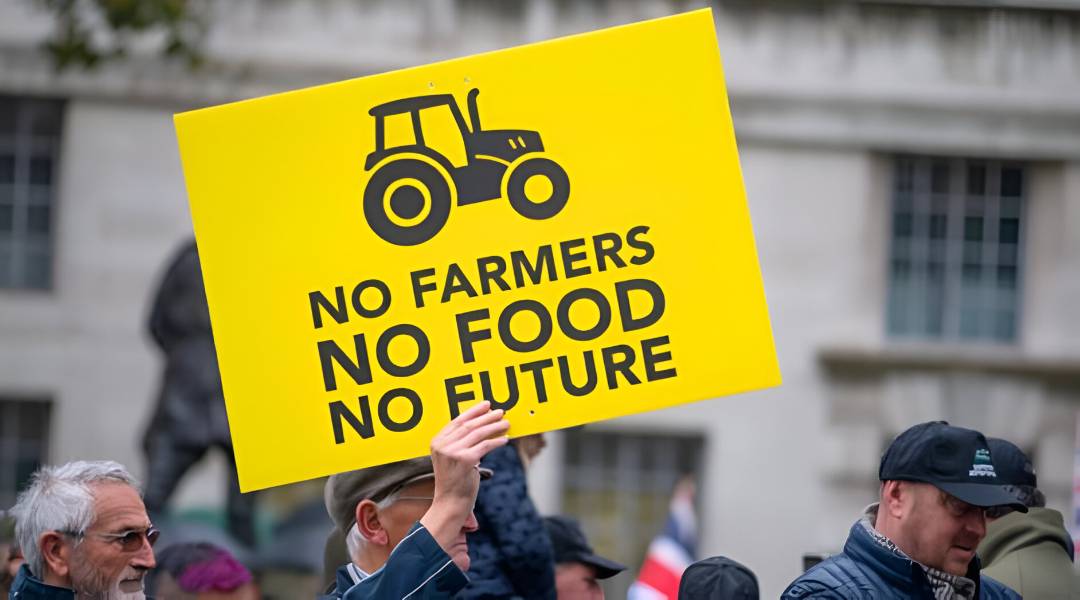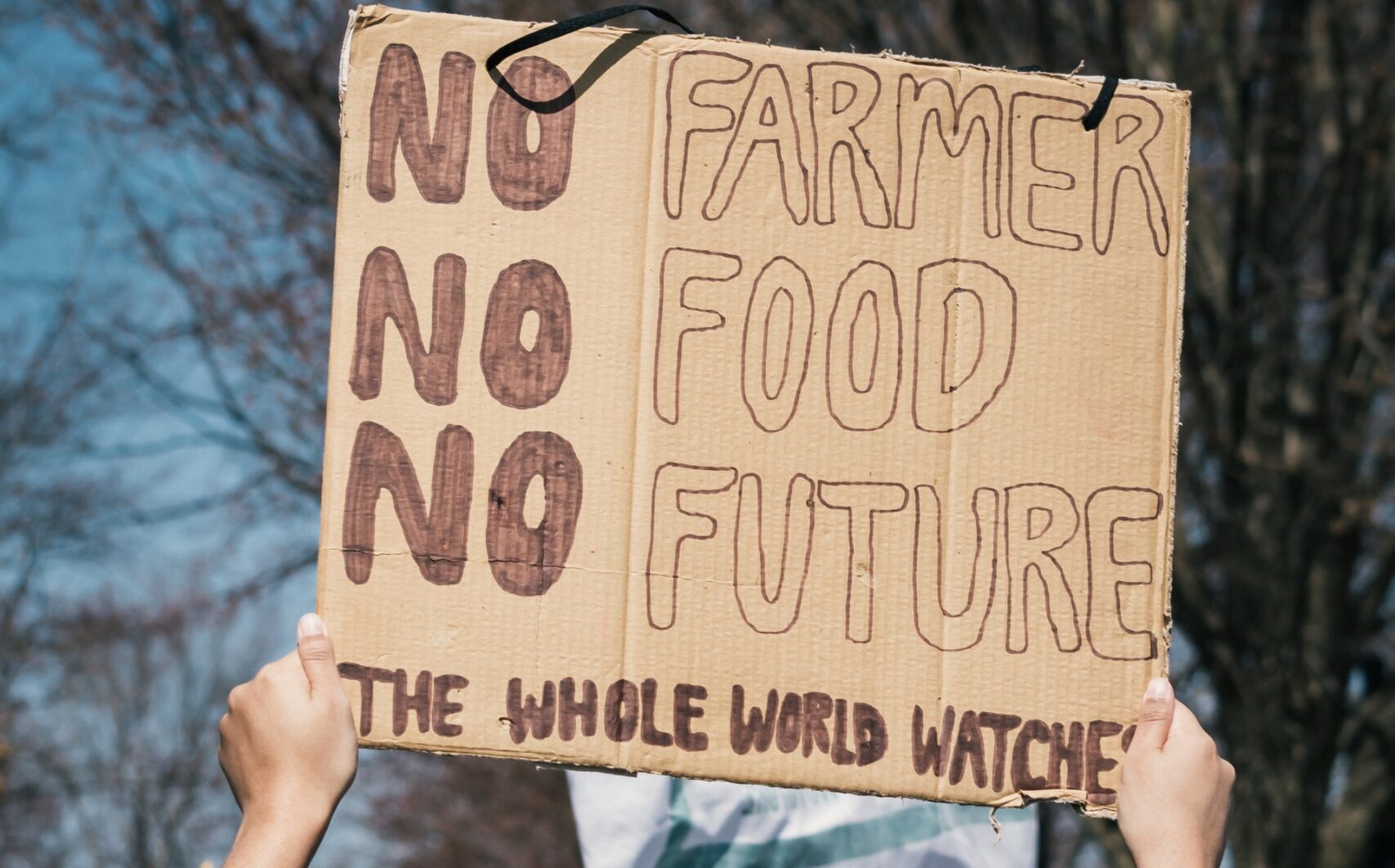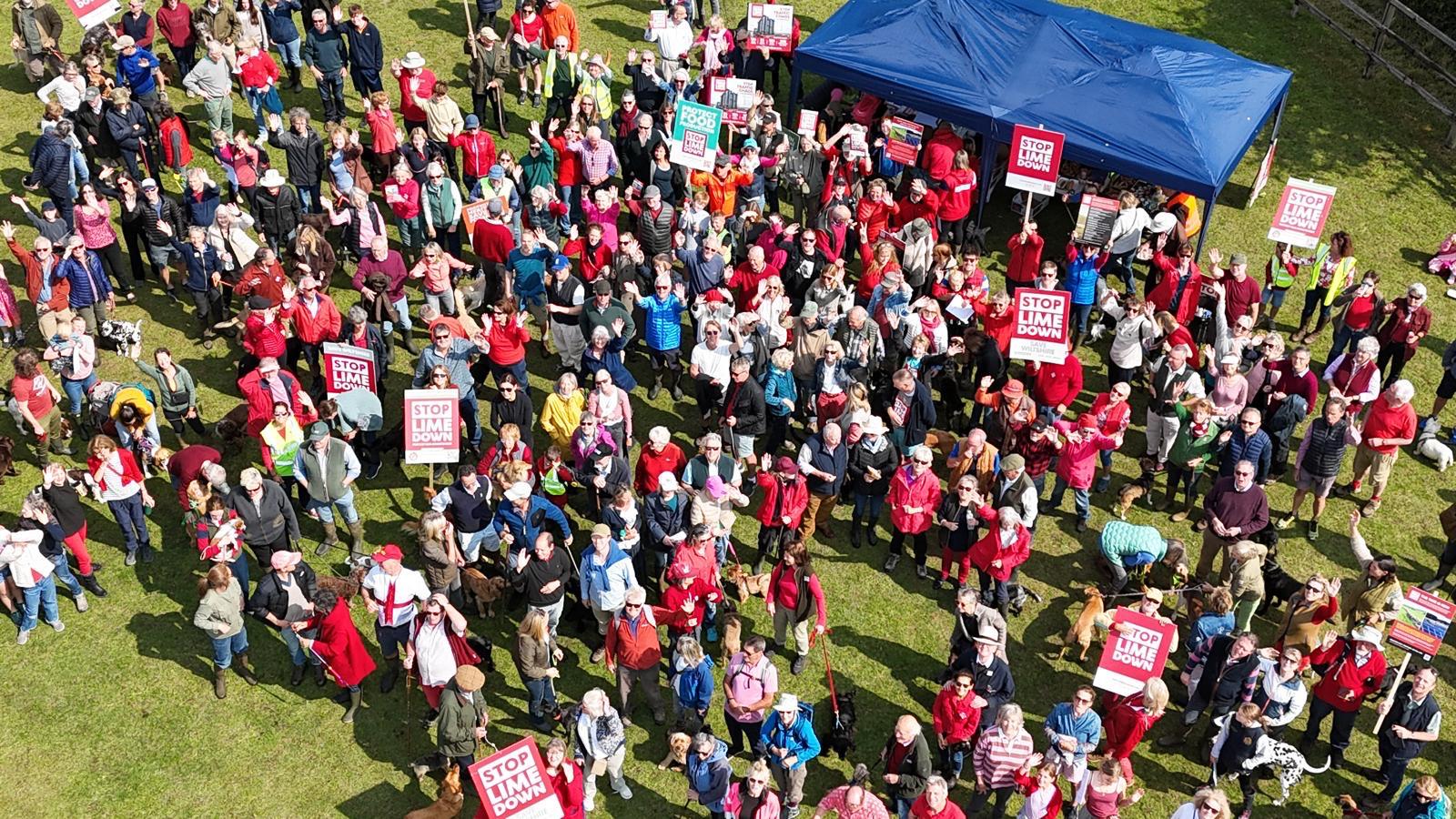Scrap Factory Farming
Check out this new film from Scrap Factory Farming; ‘The Legal Challenge’, the impact of factory farming on animals, people and the planet. Donations to their legal team can be made via their website, please support if you can!
National Food Strategy
Thursday 15th July saw the launch of the historic National Food Strategy Part 2 (NFS), an independent review commissioned by the government to set out a vision and a plan for a better food system. It has been developed in consultation with policymakers, the food and farming sectors, NGO’s, citizens and the public sector and takes into account the most up to date research and evidence available. All eyes are now on the government, which has committed to responding within the next six months via a white paper.
One of the many groups that have commented on the importance of the report is Sustain – The Alliance for Better Food and Farming;
‘The Strategy’s author Henry Dimbleby calls on the Government to commit to a package of reforms in order to build a better food system for a healthier nation. He sets out how diets contribute to approximately 64,000 deaths every year in England alone and cost the economy an estimated £74 billion. Dimbleby also warns that our eating habits are destroying the environment, which in turn threatens our food security. The food we eat accounts for around a quarter of greenhouse gas emissions, and is the leading cause of biodiversity destruction.
The independent report, commissioned by the Government in 2019, calls for:
- The introduction of the world’s first Sugar and Salt Reformulation Tax, accompanied with an expansion of free school meals and programmes to support the diets of those living in the most deprived neighbourhoods
- A £1bn innovation fund to improve the food system
- Funding for the Holiday Activities and Food Programme
- An expansion to the Healthy Start voucher scheme
- A ‘Community Eatwell’ pilot of GPs prescribing fruit and veg to improve diets
- Guarantee that the budget for agricultural payments lasts until at least 2029 to help farmers transition to more sustainable land use
- Food standards to be protected in any new trade deals
- Stronger government food procurement for healthy, sustainable food.’
Restaurateur and Great British Bake-Off judge, Prue Leith called it
“a compelling and overdue plan of action” which, if adopted, would put “our food system on the right path to health and prosperity”.
Green Party MP Caroline Lucas said she wanted to see government policies designed to meet Mr Dimbleby’s recommendations but feared it could end up being ignored.
Despite the obvious need for radical changes to our food system, key recommendations seem to have been ruled out by the Prime Minister within hours of publication – raising doubt on whether the National Food Strategy will ever be put into practice. Johnston said he wasn’t keen on a sugar tax and that taxing hard-working families wasn’t the way to go, which perhaps highlights the rise in laissez faire ‘free’ market driven Tory MPs who are unaware of the true cost of ‘cheap’ food. Also the continued scrabble for working class votes. Sadly low-income families, and those on the food poverty line, are exactly the people most at risk from a food system that causes ill health and, as Dimbleby points out at 2.22.42 on the Today programme, they are the ones that don’t want to be forced to buy substandard food.
The recommendations are essential, interconnected and could go a long way to mending our broken food system – something to lobby for in the coming months, not least on his recommendation to protect UK farmers from substandard imports.
NFS demands minimum standards for trade
During the Agriculture Bill debates in 2020, more than 2 million people signed petitions calling for UK food standards to be protected in law. Polling by Which? showed 94% of consumers surveyed want food standards to be upheld in future trade deals. UK farmers need protection if they are going to be able to afford to move towards more sustainable methods of production as prescribed in the government’s post Brexit agricultural policy where public money will be awarded to farmers for public goods such as protecting nature. Sustain praises the NFS’s recommendation to have a set of core standards for food imports:
“Buying low standard, low animal welfare imports would be off-shoring our global responsibility towards people and the planet. We welcome the NFS recommendation that the Government define minimum standards for food imports, and a mechanism for protecting those standards. This echoes what the Trade and Agriculture Commission called for earlier this year. The Government needs to bring forward plans on this urgently before it signs a low standard deal with Australia, which would pave the way for more of the same with other nations.”
The EU will protect its farmers
This level of protection is already going ahead in the EU when it phases out the use of animal cages in agriculture by 2027.
‘In addition to putting forward new legislation to phase out the use of cages for farmed animals by 2027, the European Commission’s legislation will ensure that all imported products in the EU comply with future cage-free standards, and implement systems for incentives and financial support to European farmers during the transition to cage-free farming’.
Lockdowns increase global hunger
The NFS could be a blueprint for resilient food and farming the world over and so stem the increasing volatility in our food system that has been exposed by the economic fallout from the lockdowns and rapidly rising food prices that, according to the UN, have undermined access to food and thereby fuelled a sharp increase in the number of people going hungry around the world.
‘The number who did not have access to adequate nutrition last year rose £320m to £2.4bn — nearly a third of the world’s population — the UN said in a report published on Monday. The increase is equivalent to that of the previous five years combined. The number of people facing acute food insecurity is at record levels, raising concerns about social unrest and increased migration, the UN said. Almost 1bn people were severely food insecure, up by a fifth from 2019. Arif Husain, chief economist at the UN World Food Programme, said the situation had been caused by rising food prices and sharp falls in household incomes. “What we see today is a price shock and at the same time incomes have been decimated, and that impact is devastating,”
From global to local
The present impact of the covid restrictions and Brexit on UK farmers is reflected in shortages of workers (Farming Today 7.30 seconds in) not only to pick farmers’ fruit, but to drive lorries, work on the manufacture line, in abattoirs and hospitality. The Food and Drink Federation (FDF)’s short term solution is to treat the symptoms of the breakdown by allowing longer hours for lorry drivers and making more lorry-driving tests available. However, the FDF warns that this is a long term structural problem due to the current ‘war for workers’, that will increase wages along with a rise in commodity and oil prices, that could put up food prices up by double digits on supermarket shelves and in restaurants and coffee shops.
If the true cost of imported farm labour, long supply chains requiring long distance transport, and energy intensive production and processing, were internalised into the cost of our food, local commodities and food from real farmers, local workers, local abattoirs and local butchers, shops and restaurants, would be cheaper, as well as being healthier and more resilient. The Sustainable Food Trust welcomes the NFS though rightly suggests that there needs to be government support for local and regional food systems:
On local food, we were pleased to note the report’s recommendation that, “The Government should conduct a review of small abattoirs to ensure that the capacity exists to serve the expected increase in numbers of farms using livestock in their rotations.” This is a critical issue which must be addressed across the UK… In order for many of the report’s recommendations to be viable, the correct supply chain infrastructure must exist to support them. We would therefore go further and recommend a specific strategy to develop and support local and regional food systems, with greater investment in short supply chain infrastructure, as a key part of the National Food Strategy’s wider plan for healthy and sustainable food.’
Sadly I doubt that the NFS will change the intransigent neoliberal mindset of the DEFRA minister George Eustice, who recently claimed that small, local abattoirs do not need government support despite the new requirement to reduce livestock journey times. Christopher Price, chief executive of the Rare Breeds Survival Trust, wrote to him pointing out that abattoir availability is one of the biggest challenges for livestock farmers with native breeds.
“Even if there is an abattoir within a reasonable distance, many of the larger-scale ones are single-species, whereas producers with rare and native breeds often rely on a mixed farming system with several farmed species to make their farming business viable,” said Mr Price.
As many abattoirs don’t accept small numbers, slaughter cattle over 30 months or accept horned cattle and large pigs, Mr Price also wants to discuss a path forward through collaboration, including support from government for mobile or “pop-up” abattoirs.
NFS is not quite perfect!
However brilliant the NFS is in theory, just for the record, there are a couple of recommendations that I would like to tweak! As highlighted by The Sustainable Food Trust,
‘Grazing livestock can play a positive role in rebuilding soil fertility and restoring habitat, but the report wrongly concludes that intensification of livestock is better than extensification, and grain better than grass, in order to meet our greenhouse gas reduction targets. Instead we need to differentiate between the intensively farmed animals which are part of the problem and the pasture-fed cattle and sheep which are absolutely part of the solution. In other words, ‘it’s not the cow but the how’.
This concern is articulated by Stewart Robinson, Deputy President of the NFU and organic beef, sheep and arable farmer on Farming Today at 9.48;
“Meat has been thrown into one blanket category and no distinction between our grass fed production here and imports from other parts of the world that we know are less sustainable than our production.”
I also concur with him that the report should prioritise ‘land sharing’ over ‘land sparing’. By only leaving space for nature to regenerate on spare land, i.e. land that is less suitable for growing food, ‘land sparing’ will further intensify production on the more productive land. ‘Land sharing’ is the better option as it promotes agro ecological food production across the entire farm;
“We get into the argument about using some land for the environment and some for food when I’m a big advocate for land sharing. So as a farmer I do environmental things while producing food. We have to look at how we use our land to do both of those things. It is not a binary choice.”
Biden wake up call
Even Joe Biden has commented on the problems of industrial agriculture conglomerates;
‘Concentrated ownership in agricultural markets means “farmers’ and ranchers’ share of each dollar spent on food has been declining for decades,” while at the same time “consumers are paying more, and the big conglomerates in the middle are taking the difference,” the White House said in a fact sheet about a new executive order Friday.’
With new found concern for the US food system, perhaps Biden could be persuaded to sign up to the Farm System Reform Act that is being reintroduced in Congress that would ban new factory farms.
‘A diverse coalition of animal welfare, public health, environmental, and sustainable agriculture organizations commend U.S. Sen. Cory Booker (D-N.J.) and U.S. Rep. Ro Khanna (D-Calif.) for introducing the Farm System Reform Act, federal legislation that will help create a more humane food system by moving away from destructive concentrated animal feeding operations (CAFOs) and supporting the transition toward higher welfare, certified farms, and alternative crop production. This legislation also includes provisions to address industry consolidation and unfair practices, which can hamper farmers’ independence and ability to improve animal welfare, as well as measures to ensure communities located near factory farms are able to hold these companies legally accountable for negative environmental and public health impacts, and to provide consumers with increased transparency on country-of-origin labelling’.
News Round-up
? Wisdom of the past. This BBC online article is about returning to a system our grandparents would have witnessed as described by Peter Greig from Pipers Farm.
“Modern, intensive farming, with its use of synthetic chemicals, antibiotics and processed animal feed, all work to destroy this delicate balance. Agriculture has moved away from the basic common sense of acting in harmony with nature. It produces massive quantities of an industrial commodity, which is so destructive to the natural world and does not deliver the basic building blocks of human nutrition.”
? The UN has a plan to cut extinction rates, that’s going involve a shake up in industrial agriculture;
“Change is coming [in food production].. Cutting nutrient runoff in 1/2, reducing pesticide use by 2/3 and eliminating plastic discharge: those are big. I’m sure they’re going to raise some eyebrows as they present significant change, particularly in agriculture.” Basile van Havre, co-chair of the UN Convention on Biological Diversity.
? New book on herbicides addresses contemporary debates
effects of some pesticides have been detected or mitigated too late in some cases, as for the role paraquat in Parkinson’s disease or chlorpyrifos in neurobehavioral disorders. Uncontrolled damages to ecosystems have also been common. A new hot topic is glyphosate and its potential carcinogenic effects. Debates are raging, and people are even marching on the street to protest against the use of glyphosate..’
✒️ New studies into herbicides used with GM show that they can exacerbate antibiotic resistance in soils
‘Experiments in soil microcosms have found that the application of three widely used herbicides – glyphosate, glufosinate, and dicamba – that are also used in conjunction with GM herbicide-resistant crops, increased the prevalence of antibiotic resistance genes (ARGs) and mobile genetic elements (MGEs) in soil microbiomes without clear changes in the abundance, diversity and composition of bacterial communities.’
?Prince Charles says small farms under threat from big agriculture;
“Small family farms across Britain are under threat from industrial agriculture and the pursuit of cheap food, Prince Charles has warned. In an essay for BBC Radio 4’s Today programme, the Prince of Wales said the ‘heart will be ripped out of the British countryside’ if this was allowed to happen.”
Please donate
Forgive me for pointing out that, while we receive some one-off donations, I am funding Farms Not Factories myself, and if we are to continue to fight the cruel, antibiotic-led factory farm system, we will need some regular donations from like-minded people. Please consider a monthly subscription of £2/month and help us support a network of smaller scale, humane and healthy UK pig farms, local abattoirs and butchers.
“Our message is simple, we want to help bring an end to this dangerous, inhumane system. Vote for real farming over factory farming.”
– Tracy Worcester, Director
Contents
Share This Article
Related ArticlesView All
Protectionism vs So-Called Free Trade
The purpose of our newsletter is to give you important information that is censored in the mainstream media. “The way… Read More
Find A Farmer
The purpose of our newsletter is to give you important information that is censored in the mainstream media. “The way… Read More
Zionist Money Rules
The purpose of our newsletter is to give you important information that is censored in the mainstream media. “The way… Read More
The Price of Progress
The purpose of my newsletter is to give you important information that is censored in the mainstream media. “The way… Read More
Silencing Dissent Through Fear
The purpose of my newsletter is to give you important information that is censored in the mainstream media. If you… Read More
Ukraine and Israel – A United Force
The purpose of my newsletter is to give you important information that is censored in the mainstream media. If you… Read More






